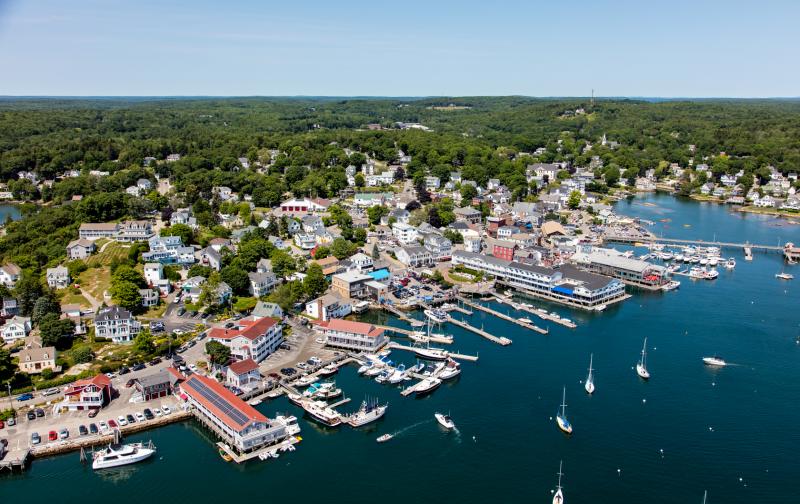Boothbay region at forefront of climate crisis
According to the National Oceanic and Atmospheric Administration (NOAA), the U.S. is poised for more record-breaking heatwaves after experiencing the hottest summer on record last year due to climate change. While Gov. Janet Mills' four-year, Maine Won’t Wait Climate Action Plan has shown the state’s dedication to addressing climate change, area towns find themselves at the forefront of the fight against climate change including issues with sea level rise and ecosystem changes.
“I think communities should be looking to preserve who they are. These are key historic, scenic and business resources,” said Lincoln County Regional Planning Commission (LCRPC) Executive Director Mary Ellen Barnes. “It's not likely to get any less expensive to solve some of these issues.”
In 2020, global sea levels reached a new record high of 3.6 inches more than 1993 levels, according to NOAA. Many areas in the region have already experienced increased flooding, such as Boothbay Harbor Sewer District (BHSD). BHSD serves 1,275 residential and 320 commercial, industrial, and government customers in Boothbay Harbor, Boothbay, and Squirrel and Capitol islands.
“Everything flows out of the plant by gravity. And with higher tides, that means we can't get water out quick enough. And it could back up into the contact tank, which it has,” said Superintendent Christopher Higgins. This problem is worsened by storm surges and increased rainfall; last October, flood waters were within six inches of the top of the contact tank (commonly used to disinfect drinking water prior to distribution). Higgins explained that if the water had gotten any higher it could have flooded the surrounding area and properties as well.
BHSD recently received a $200,000 American Rescue Plan Act (ARPA) grant to design a seawall around their facility. The final $4.7 million project will also include a standby generator, stormwater drainage system improvements and hydraulic modifications to migrate tide surges and sea-level rise.
BHSD is also working to prevent fresh and saltwater from leaking into the contact tanks, which could kill the bacteria needed for the water treatment process. Last spring, the facility relined its pipes to prevent rising groundwater (water held in the soil or in pores and crevices in rock) from infiltrating leaky joints. According to technologyreview.com, as sea levels rise, groundwater will continually be pushed up to the surface as saltwater is denser than freshwater. BHSD is also looking at sealing manhole covers to keep tidal flood waters out of the system.
“There's no land. There's no property that's safe from these things,” said Boothbay Region Land Trust (BRLT) Director Nick Ullo. BRLT currently oversees 1,169 acres across 16 preserves.
Ullo has observed rising sea levels’ effect on lowland marshes; these marshes are typically only covered by water during high tides but are going to be completely submerged in the future; this will cause the marshes to migrate and cause flooding. BRLT is trying to secure properties near its preserves to give marshes room to migrate. “The hard part about it is that you can't adapt after the fact. You have to plan ahead.”
One of BRLT’s main concerns is increased sea temperature and acidity, and decreased dissolved oxygen levels they’ve observed through their water quality monitoring program. The project has been testing 11 shoreline sample sites every other week for eight years.
According to Ullo, these conditions can be hazardous to the local shellfish population as they can cause thin and brittle shells. University of Maine researchers also found, lobsters in warm acidic water have reduced heart function and fewer infection-fighting cells. As temperatures continue to rise, Ullo said lobsters will start to move northeast to colder waters, with other species, such as blue crabs, moving in to take their place. BRLT has also observed an increase of invasive species disrupting the natural habitats on their preserves.
“The scariest part about it is that it seems to be happening so rapidly,” said Ullo.
However, Barnes and LCRPC County Planner Emily Rabbe are optimistic about the steps the state and towns have taken. “I think communities have recognized it’s cost-saving to do it now versus waiting until that event actually happens,” said Rabbe. “If you spend money on preservation what's the return versus how much you would spend on having to rebuild?”
LCRPC’s monthly newsletters that break down the Climate Action Plan are at lcrpc.org

























